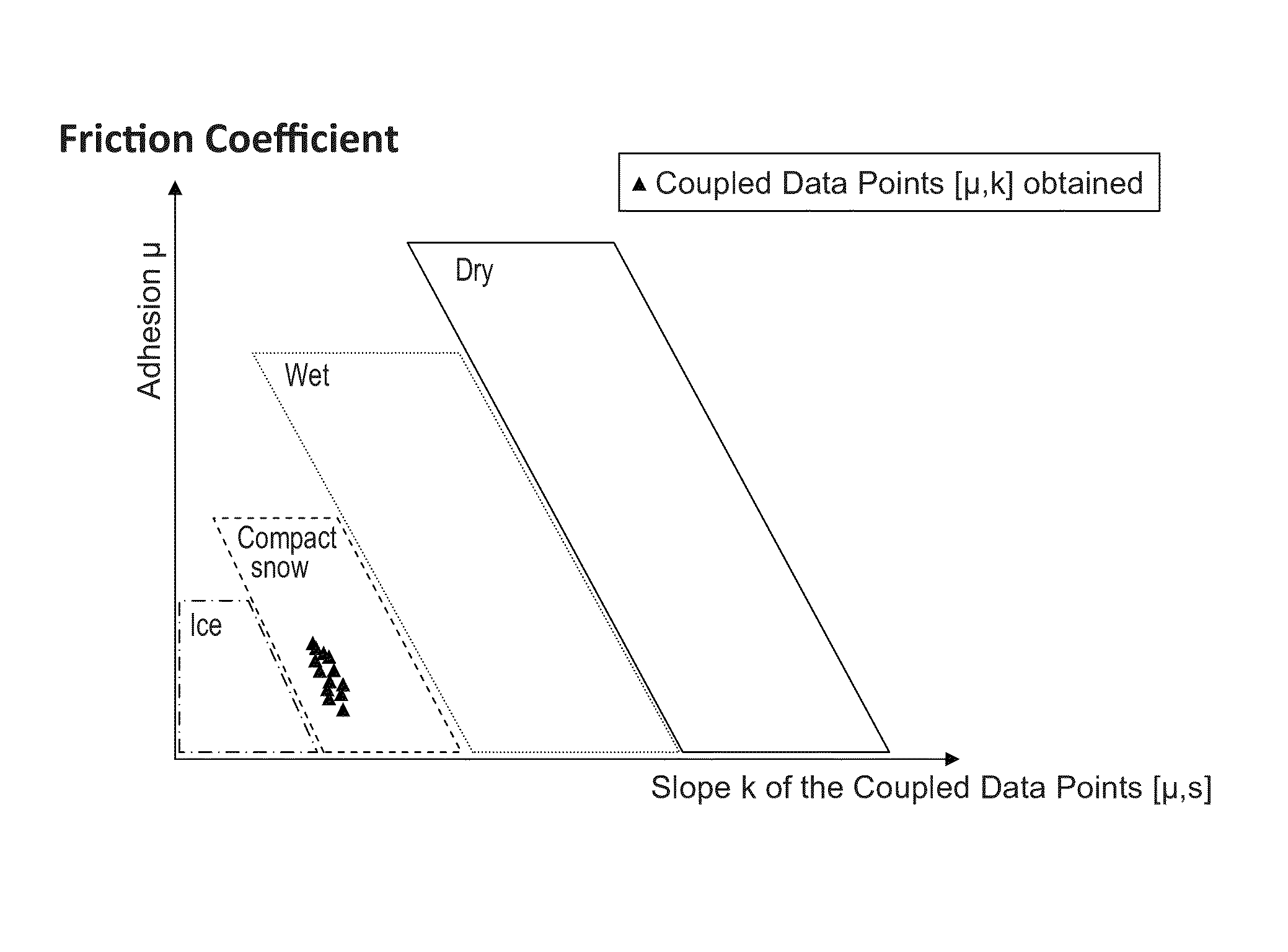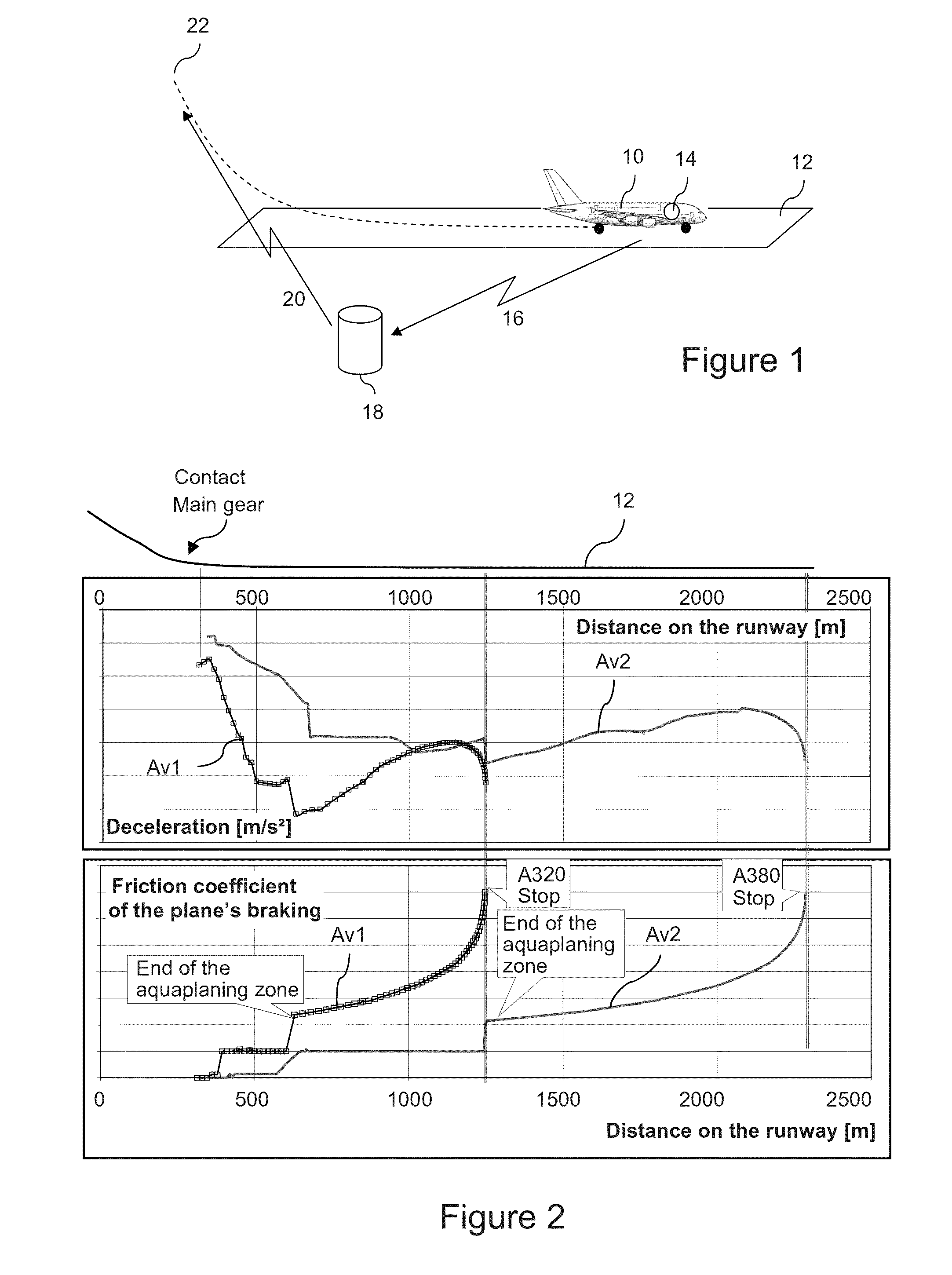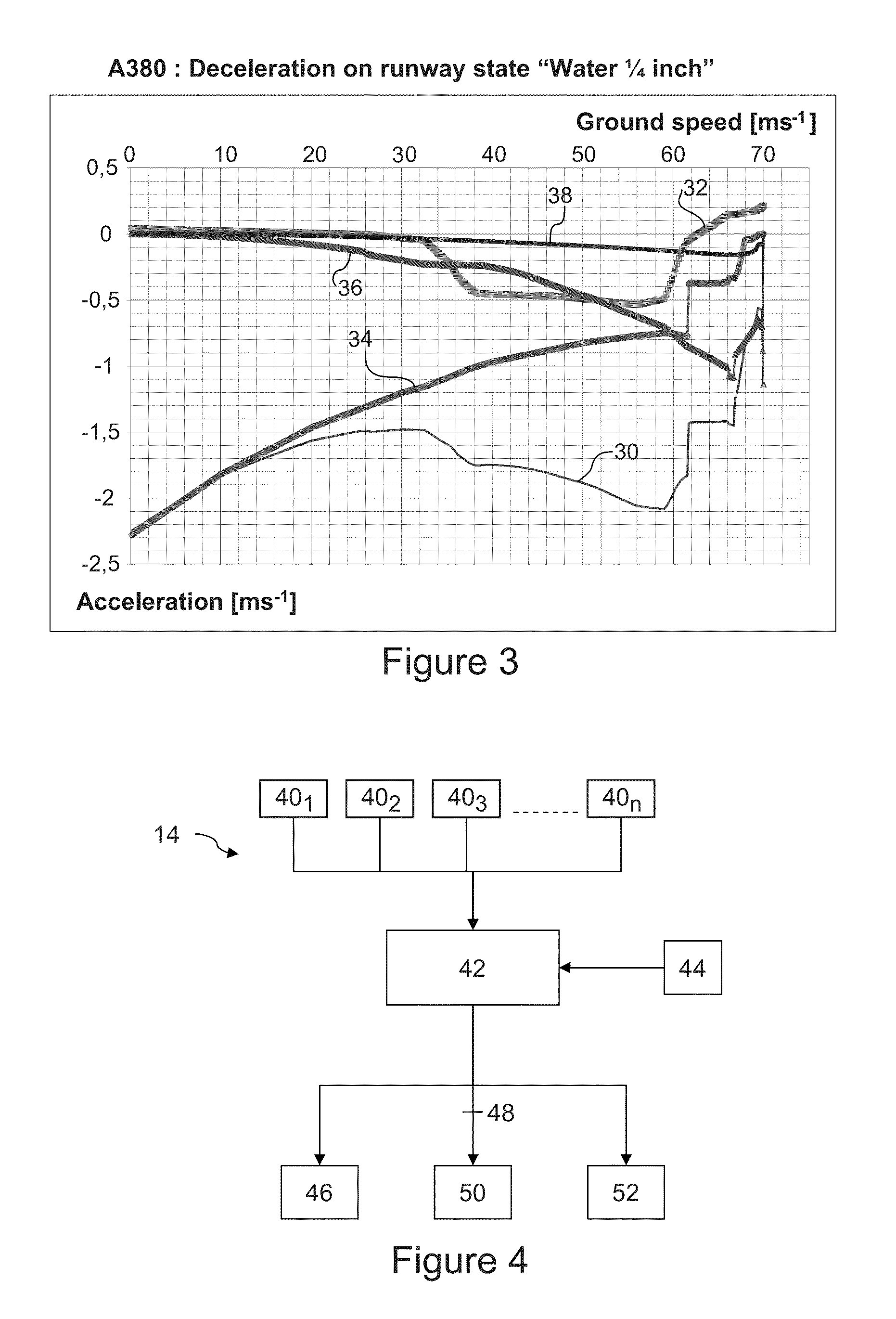Device and process for determining a runway state, aircraft including such a device and piloting assistance system using said runway state
a technology for determining the state of a runway and a piloting assistance system, which is applied in the direction of aircraft ground control, aircraft traffic control, instruments, etc., can solve the problems of difficult adhesion measurement, ineffectiveness, and difficult prediction of braking performance of aircraft on a runway said to be contaminated, so as to improve the reliability of estimation, simplify calculations, and accurate correlate determined runway states
- Summary
- Abstract
- Description
- Claims
- Application Information
AI Technical Summary
Benefits of technology
Problems solved by technology
Method used
Image
Examples
Embodiment Construction
[0058]In FIG. 1, a plane 10 at the end of the landing roll / braking phase on an airport runway 12 is represented. Said plane 10 is equipped with a device 14, object of the invention, able to determine the state of the runway 12.
[0059]Through a communication link 16 provided for this purpose, the plane 10 that determines the state of the runway on-board, communicates said state to a central station on the ground 18 at the airport. As a variant, the measurement performed on the plane 10 can be forwarded to the ground station 18, who in turn determines the state of the runway as set forth in the invention. This ground station, after potential internal processing, communicates (20) a runway state to the planes 22 in the approach phase for landing or those ready for take-off.
[0060]The latter in turn will officiate as the plane 10 at the end of their landing or take-off to enhance the central station 18 with additional information about the state of the runway, in order to achieve in parti...
PUM
 Login to View More
Login to View More Abstract
Description
Claims
Application Information
 Login to View More
Login to View More - R&D
- Intellectual Property
- Life Sciences
- Materials
- Tech Scout
- Unparalleled Data Quality
- Higher Quality Content
- 60% Fewer Hallucinations
Browse by: Latest US Patents, China's latest patents, Technical Efficacy Thesaurus, Application Domain, Technology Topic, Popular Technical Reports.
© 2025 PatSnap. All rights reserved.Legal|Privacy policy|Modern Slavery Act Transparency Statement|Sitemap|About US| Contact US: help@patsnap.com



